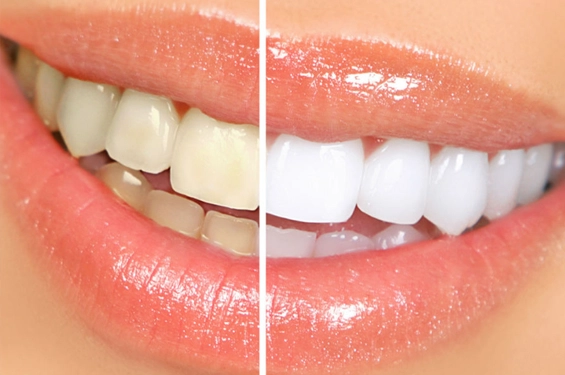Mead Family Dental

About teeth whitening
Teeth whitening, or bleaching, is designed to enhance the whiteness of your teeth. There are several options available, including toothpastes, rinses, strips, gels, professional treatments, and take-home kits. It's important to recognize that the most effective and reliable whitening systems are those offered by dentists. These professional treatments contain higher concentrations of whitening agents and are administered under supervision. While over-the-counter products can be effective for individuals with healthy teeth and gums, they may carry risks of damage for those with existing dental issues.
How Does Teeth Whitening Work?
Teeth whitening products fall into two main categories: those containing peroxide-based bleaching agents and whitening toothpastes or dentifrices. In the peroxide-based category, most systems utilize either carbamide peroxide or hydrogen peroxide as their active ingredient. The effectiveness and safety of these whitening systems depend on the concentration of these ingredients. They work by initiating a chemical reaction between the bleaching agent and the discolored molecules, effectively removing stains and discoloration.
teeth whitening quick facts:
What are the causes of stained teeth?
- Consumption of coffee and tea
- Intake of darkly pigmented foods
- Smoking and tobacco use
- Effects of the natural aging process
- Genetic influences on these factors
Who qualifies for teeth whitening?
Teeth whitening offers benefits for almost everyone, though results can vary based on individual circumstances. Pregnant or breastfeeding women, children under 16, and those with allergies to bleaching agents are typically advised to avoid this procedure. We will help evaluate your eligibility for treatment.
Can Teeth Whitening Benefit Individuals with Sensitive Teeth?
If you experience tooth sensitivity, it's important to steer clear of over-the-counter whitening products. Instead, consult your Mead Family Dental for professional guidance and recommendations. This will help ensure a comfortable and effective treatment while minimizing any discomfort. Contact us today!
